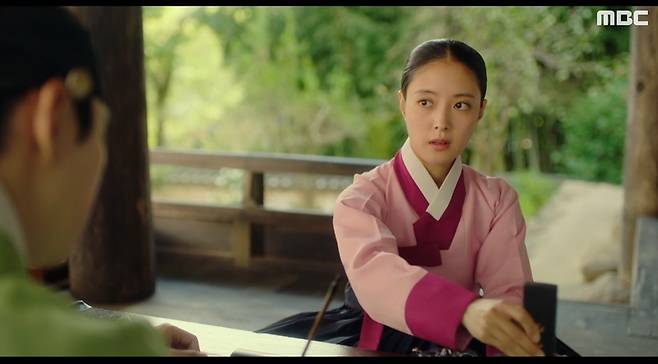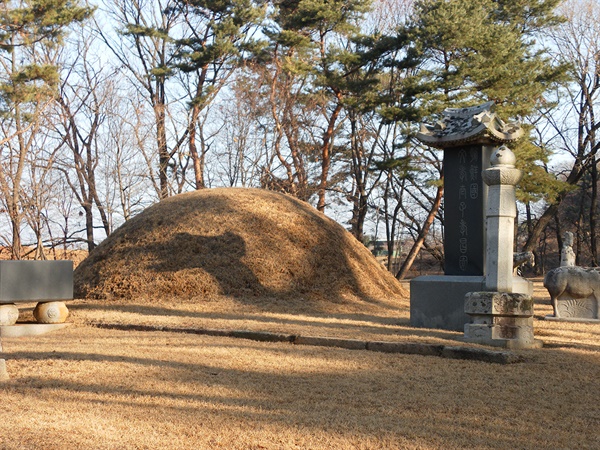

MBC’s Red End of Clothes Retail, which deals with the reformed monarch’s reign, is similar to MBC’s “Isan” in 2007. One of the things is that the female protagonist plays the role of “Hong”. The female protagonist Sung Duk-im (Lee Se-young) said, "Every time the three-son, Jungjo (Lee Joon-ho), hits Danger, Mr. Handy, like Mr Hong, does the role of solver.
Maybe she Sungdeok in the drama helped her to a secret life even in childhood. Just before Jeongjo's act, which he read, "Do not read by his grandfather Yeongjo (Lee Duk-hwa), was revealed, young Sung Duk-im sneaked into the library. After that, he showed his base to tear the part out of the book he read and hide it. Yeongjo praised Jeongjo, saying, "You ripped it to avoid one part I should not read." Although this happened, Jeongjo did not notice that Maybe she, who was a saint, helped him.
Sung Duk-im is a great power for Seson even after she has changed from girl to lady. As he managed the library of Donggung (Sejinggung) he became a god of love with Seson, and he made a decisive contribution to the release of Seson from the gold spirit.
The female protagonist of the drama
It was the same when the political opponents opened a rite (, , , , , , ) to Assassination Seson. Sung Song-yeon obtained the ark of the event (manual) in advance and found circumstantial evidence to prove the Assassination conspiracy. It was not Dohwa Damo, but like the NIS agent, and defended the future reform monarch.
The female protagonists commonly dealt with by Lee and Lee are Sung So-yong (Song So-yong) or Sung Ui-bin (Sung Ui-bin) in
The use is the three-piece concubine and the bin was the one-piece concubine. The personal information confirmed today is that the surname is the surname and the three-piece is promoted from the first item. In addition, it is confirmed that he gave birth to a young man, Moon Hyo-seja, and Ongju, and left the world with his third child pregnant.
The surname in the two historical dramas is a figure like Mr. Handy and Mr. Hong to Jeongjo, but this is irrelevant to the historical record. Nor does there exist records showing that he was not a figure like Handy, Mr Hong, so this remains the realm of imagination.
According to the "Jungjo Annals" dated September 14, 1786 (Nov. 14, 1786) on the lunar calendar, Jeongjo mourned Sung Ui-bin, who died on the day, and lamented, "From now on, there is no place to ask for the national history (the country).
Based on this sentence, which presupposes that Jeongjo had entrusted Sung Ui-bin with the national history, there is room for reasoning that Sung Ui-bin would not have assisted her husband's administration of the state. But the history of the state here was not such a history. It was a concept far from the administration of the state.
The above date annals tell the story that Jeongjo waited very long for his birth. In addition, there is a line in which Hong Nak-sung, a junior class, says, "The desire of the whole Europe depends on this." Then, there is a lament of Jeongjo, "From now on, there is no place to entrust the national history." As you can see, Jeongjo's "national history" was a successor birth
The birth of a king's child in the dynasty was the result of a presidential runner in the present day, and in this era, the birth of a prince was a major ambassador that could be included in the category of "national history". It was because the royal family of this period was also very precious, as were other monarchs of the late Joseon Dynasty, that Jeongjo was lamenting that there was no place to entrust the national history.
Jeongjo became a king in 1776, when he was 24 years old, and in his sense, he became a king at the age of thirty or older, but he got his first child in 1782, six years later. The prince born at this time is Sung Ui-bin's son. The royals were able to maintain their power in a stable manner if the king's successor was prepared, so there is no need to emphasize how closely the royals had watched this issue for those six years. Especially, it would have been a very nervous time for those who share interests with Jeongjo.
The prince, who was born in six years, was later called the "Tax Prince." If he became a king after his tax life, he did not have to be given a separate title in front of the "Tax Prince". As shown in the case of the Apostle Taxpayer, it was not a wage, and because it ended its life as a tax collector, it was put in front of the 'taxpayer'.
The son who later became the successor of Jeongjo is Sunjo. Sunjo was born in 1790 in the body of Park Soo-bin (Subin Park). With only one prince left, Moon Hyo-seja died, so the shock that people received at the time was very large. In this state, Europe came to expect because the third birth of Sung Ui-bin was imminent in the second half of 1786 when Moon Hyo-seja left.
As such, when the descendants of the royal family were precious, Sung Bin gave birth to Ongju after his son, who would become a tax collector, and conceived his third child. He was loved by the royal family for repeatedly giving birth to new lives. It was not because Jeongjo appeared every time he was in Danger, but because he was pregnant with the prince three times.
However, Sung Ui-bin's life ended during the pregnancy of her third child, and his life ended so soon after four years of becoming the concubine of Jeongjo after pregnant with Moon Hyo-seja.